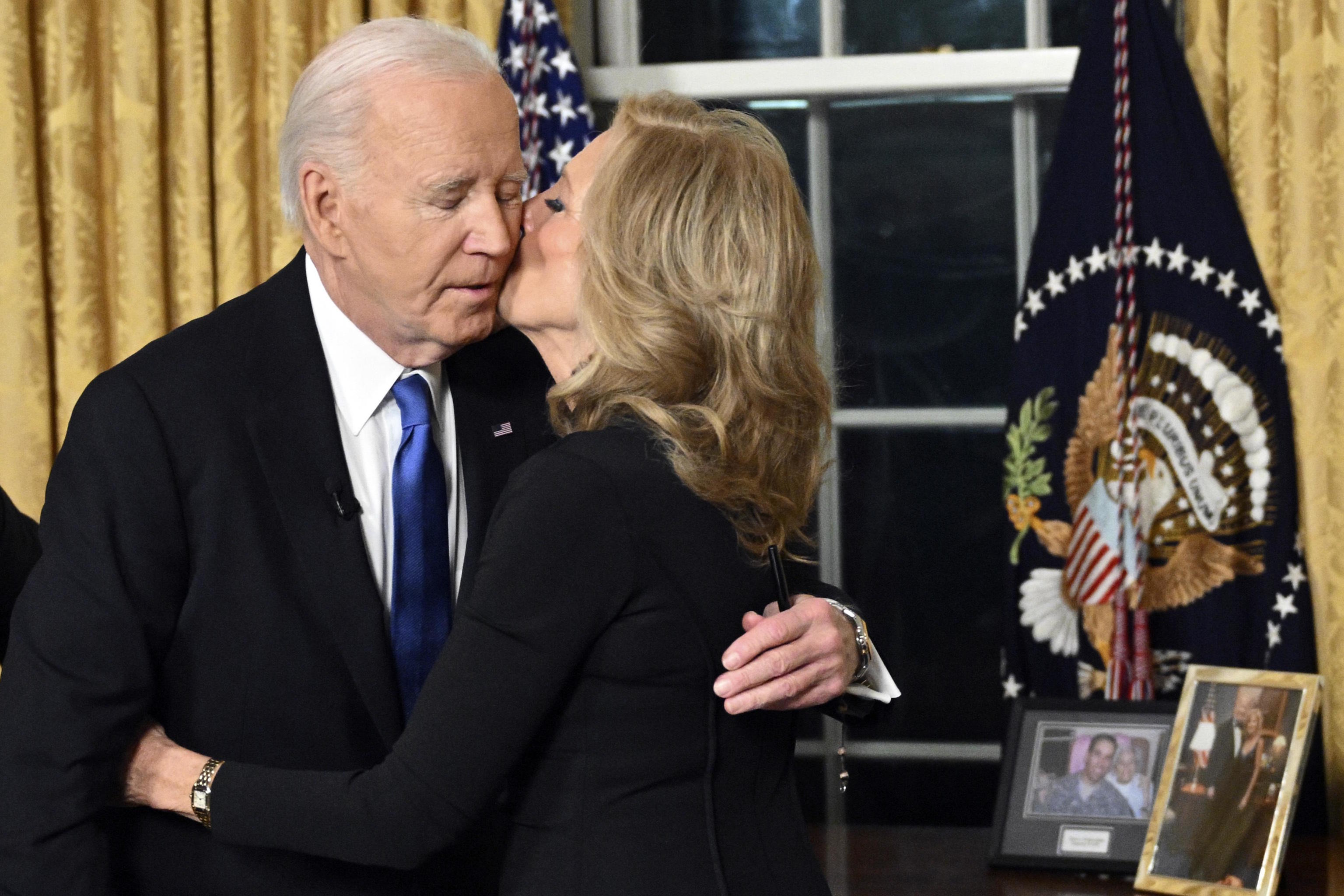In January 1961, in his farewell address to the nation after eight years as president, Dwight D. Eisenhower coined one of the most famous expressions in political history when he warned about the weight, power, and threat posed to the Republic by the "industrial-military complex." Since then, each president's farewell is evaluated against that standard, ranging from more optimistic to pessimistic messages, but with the same benchmark. This Wednesday, Joe Biden unofficially closed more than half a century of political career from the Oval Office with a generally positive message, likely the last of a fading era. But amid his defense of institutions and constant declarations of love for his country, he also slipped in a serious warning against the "technological-industrial complex" and the erosion of truth itself, led by social media platforms and artificial intelligence.
There were no names mentioned, and none were needed. It is perfectly clear who he is referring to: Donald Trump, Elon Musk, and billionaires, especially in the technology sector, who pull the strings of the incoming administration. "In democracy, the concentration of power and wealth poses another danger: it erodes the sense of unity and common purpose and generates distrust and division. Engaging in our democracy is exhausting and even disillusioning... we must continue to participate in the process," he urged citizens. "Americans are being buried under an avalanche of misinformation and disinformation, allowing the abuse of power... truth is suffocated by lies."
Biden's speech was classic in almost all its variables. In the tone of the system still considered the city upon a hill that serves as a compass for the planet, albeit lacking emotion or strength. In his Kennedy-esque hope. In his references, from the Revolution to integration. In his naive, almost painful aspiration when he stated that "after 50 years in the midst of all this, I know that believing in the idea of United States means respecting the institutions that govern a free society: the presidency, Congress, the courts, a free and independent press...". But he surprised almost everyone with the ambition of the changes he has called for, much deeper than usual in the system that he has contributed to shaping over the last half-century.
Thus, listening in his final days to the demands of the most activist and left-wing wing of his party, he called for Supreme Court justices (currently with a solid conservative majority that Trump could bolster if any of the justices decide to retire in the coming years) to have limited terms in office, for an amendment to the Constitution to make it clear that no president has nearly total immunity. Or for congressmen and senators not to hold stocks and profit from markets while in office.
Biden's world closes with him, but from his words, it seems he does not yet know or accept it. His intervention was not epic or particularly emotional, it will not be remembered for his expressions, but surely his central idea will be key for the next decade. "In my farewell speech tonight, I want to warn the country about some things that concern me greatly, such as the dangerous concentration of power in the hands of a few ultra-rich individuals and the dangerous consequences it can have if their abuse of power is not controlled. Today, in the United States, an oligarchy of extreme wealth, power, and influence is taking shape, literally threatening our entire democracy, our rights, and basic freedoms. We see the consequences all over the United States. And we have seen it before."
The echo of Eisenhower resonated strongly. Six decades ago, he wanted to prevent the "military-industrial complex from acquiring unjustified influence, whether sought or not. There is and will remain the risk of a disastrous rise of misplaced power." And Biden echoed that message with much more concise derivatives, without needing to recall that after the departure of the great military hero of World War II, came Vietnam.
"Americans are being buried under an avalanche of misinformation and disinformation that facilitates the abuse of power. The free press is crumbling. Editors are disappearing. Social media platforms are giving up fact-checking. Truth is being suffocated by lies told for power and profit. We must demand accountability from social platforms to protect our children, families, and our democracy from the abuse of power. Meanwhile, artificial intelligence is the most important technology of our time, perhaps of all time," he added, clearly referring to both X and Facebook, which with the change of government will abandon fact-checking policies.
The president, in his last major opportunity, did not boast about his political successes, his measures, or economic numbers, but in his own way evoking George Washington, the first president who left a warning as a legacy (against partisanship and lack of national unity). "After 50 years of public service, I give you my word: I still believe in the idea that this nation represents... now it's up to you to keep guard. Be the guardians of the flame. Keep the faith. I love America. You do too," he concluded for the history books.
